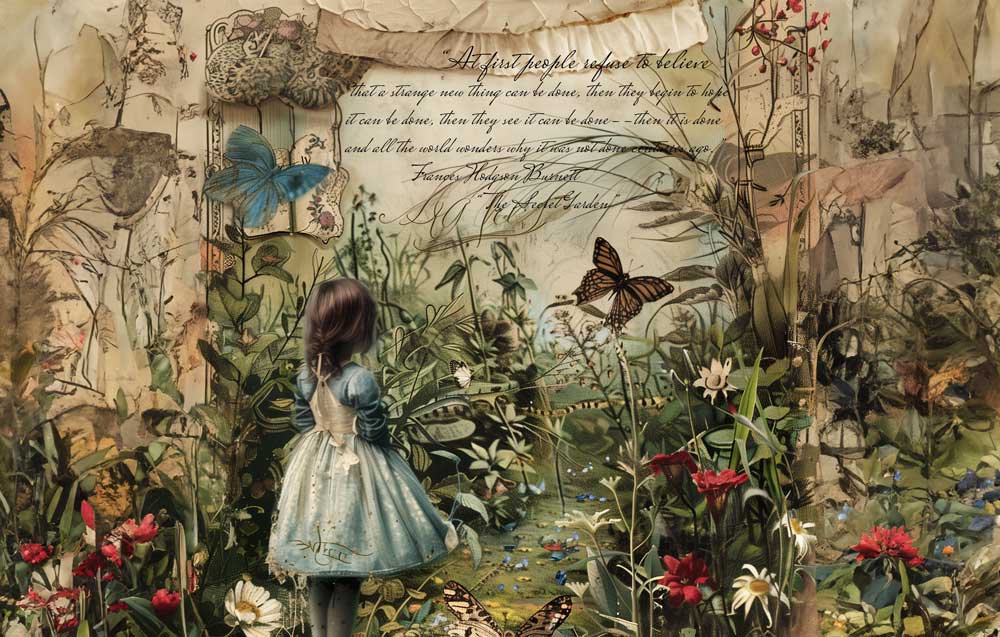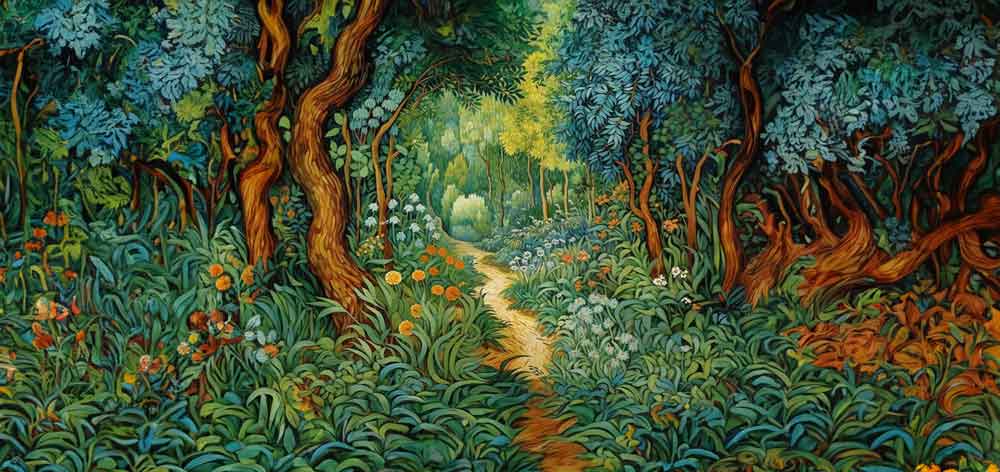“At first people refuse to believe that a strange new thing can be done, then they begin to hope it can be done, then they see it can be done–then it is done and all the world wonders why it was not done centuries ago.” ― Frances Hodgson Burnett, “The Secret Garden”
When was the last time you walked through your door into the outside world and actually absorbed all that was going on around you? Can you recall how the routines in your head faded and you became receptive to things less obvious? Maybe it was the hints of green edging spring buds, the smells of ice-bound earth rising, the low chatter of finches on the roof edge, or the first jeweled spider web in the juniper branches.

For some that might have been today, or is part of a daily ritual. For others it might be something we remember mostly from childhood, when we hadn’t yet shouldered the burdens of prioritizing, planning and generally looking backward and forward instead of at the moment right in front of us―in other words, when we still experienced the world that was closest to us as a garden.
For me it means sensing the hum of community in the smallest details of life. It’s welcoming the exuberance that is obvious for any minute we truly open our eyes and tune our ears, see insects and other animals reach for an improbably green leaf or brilliant flower, tapping into all those signals in the morning air without regard for what the novelist John Steinbeck called “teleological thinking.”
Steinbeck decided to abandon the idea of separation between himself and the natural world as he floated around the Gulf of California in early 1940 while staring at marine specimens. It was an idea that became so important that he and his philosopher-biologist friend Ed Ricketts wrote a book about it, The Log from the Sea of Cortez. At one point in the book he concludes:
“…most of the mystical outcrying which is one of the most prized and used and desired reactions of our species, is really the understanding and the attempt to say that man is related to the whole thing, related inextricably to all reality, known and unknowable.”
But I don’t think you don’t have to be a philosopher to know this feeling of belongingness. It could start with complete innocence, as it did for me when I would wake up in Clinton, South Carolina as a 5-year-old, step through the back door of my grandmother’s house and into a world of smells, thick with the exhalation of earth and animals, and wander toward the garden to see what magical transformation had happened overnight. I was, I know now, reliving the experience of millions of other gardeners throughout human history, and the wonder found by Frances Hodgson Burnett when she recalled, “And the secret garden bloomed and bloomed and every morning revealed new miracles.”

Those experiences created a longing for connection. And that probably led me to love setting out in a small boat to meander through the great seagrass gardens of the Florida Keys, abandoning any thought of destination and leaving it to the tide and clouds to choose. For me feelings like that create clarity, both of thought and purpose. I think they did as well for Frances Hodgson Burnett, who was entranced by the idea of the garden as a place of both refuge and renewal. Maybe they do for you too.
In truth, almost all of us have memories of this alternate way of experiencing life, because for all of us birds and plants and tiny creatures have been mysteries that speak to us from a deeper sensory horizon, from a place where habitual distraction hasn’t turned off our receptors.
But the plants and animals don’t forget. They’ve gone on day after day doing the things they do: searching for food, staying vigilant, tending their families, and paying regard to all the other beings who are part of their lives on any given day in whatever season in whatever weather is happening at that moment. They are fully absorbed in what is right in front of them, what is beneath them, above them, and all around.
We should all be so lucky.
